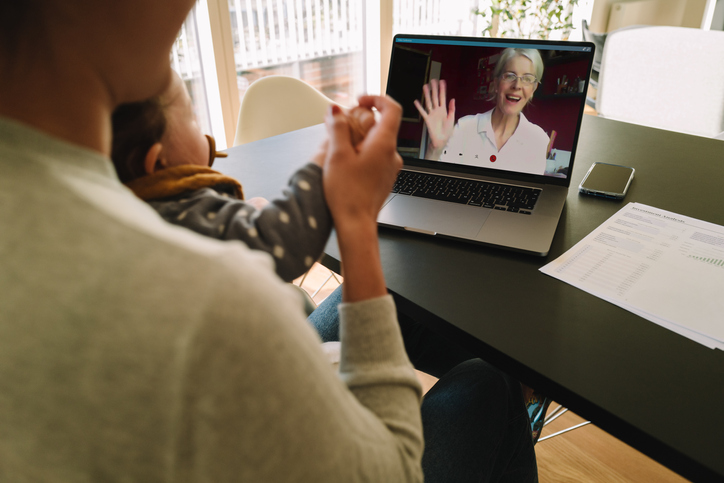Psychology professor offers insight, resources for dealing with lingering mental effects of COVID-19 shutdown
Article body
With stay-at-home orders being lifted by varying degrees across the country and a multitude of people returning to work, lingering effects of the COVID-19 pandemic may begin to become more visible. Auburn’s Nadia Bhuiyan—an assistant clinical professor of psychology and director of the Auburn University Psychology Services Clinic, or AUPSC—describes the possible psychological impact of the coronavirus and offers advice and resources for anyone who may struggle to reconnect and adjust to the “new normal” in society after months of seclusion.
What do you think the psychological impact of the coronavirus and quarantine will have on people? Will there be lingering changes going forward?
For many, people are heading into the third month of isolation and quarantine in order to protect themselves, loved ones and the community. We are working so hard to adjust to this new normal, and everyone will likely have a different long- and short-term reaction to sheltering at home, depending on that person’s specific situation. While everyone is doing their best to take care of themselves and others, it’s very normal to feel stressed, anxious and fearful about COVID-19 and its impact on our lives and the community. People may find themselves reflecting on how life was before the pandemic, while also worrying about what life will look like as we transition back to a new normal once restrictions start to lift.
Common short- and long-term psychological impacts on our well-being may include increased anxiety, worry and difficulties associated with prolonged isolation, including changes in our mood and energy. It’s possible that people will notice changes in habits and routines during quarantine, including sleep, eating and use of self-care and coping strategies. The Center for Disease Control and the Substance Abuse and Mental Health Services Administration, or SAMHSA, discuss the importance of checking in on ourselves and monitoring how we cope as we go forward. In addition to concerns about our well-being and the well-being of others, people may experience a variety of emotions as we look toward the future and consider the impact that a prolonged closure has on our community, occupations, overall health and finances.
We each will cope differently, and it will be very normal for people to experience both positive and negative emotions as we navigate our current situations and consider how we will transition back to operating in person with others. SAMSHA and CDC discuss that people may feel relief and gratitude that quarantine is finally ending, but also continue to worry about our health and the well-being of loved ones going forward. We may experience fatigue and other symptoms after the prolonged stress of worrying about COVID-19.
No matter what reactions we have, it will be really important to take care of ourselves during these transitions and pay extra attention to how we are doing physically and mentally. Should it become difficult to manage feelings of anxiety, worry and depression as we go forward with this new normal, it may be time to reach out to loved ones and professional helpers for support. Several local therapists and providers are offering telehealth services to the community. Should someone be in immediate need for support, there are several immediately accessible resources:
Call 911 for immediate assistance
National Suicide Prevention Lifeline 1-800-273-8255 (TALK)
Crisis Text Line Text CONNECT to 741741
East Alabama Mental Health Emergencies 1-800-815-0630
East Alabama Medical Center - Emergency Service 334-528-1150
For AU Students Only – 334-844-5123
How important is it for people to reconnect with each other now and when the lockdown is lifted?
The impact of isolation will be different for everyone and will depend on so many factors and each person’s situation. Isolation may be more difficult for those living alone or managing essential positions while living with loved ones. In addition, individuals living in communities where visitors are restricted may struggle more with isolation. During these prolonged periods of quarantine, it’s really important to take steps to support ourselves and loved ones through safe social connections while we shelter at home and going forward after restrictions are lifted. Currently, Auburn Parks and Recreation is offering wellness checks twice a month to help ease feelings of isolation for members of our community who are over 50. To learn more about this program, please reach out to Gabby Filgo at 334-501-2946.
Options for safe social connection include video conferencing, phone calls, social media, letters and email. During quarantine and after, it will be important for us all to make strides to be there for our community and loved ones.
The CDC and each state have set expectations for what safe social gathering should look like, so I recommend that people review the established guidelines and consider what is best for each person’s situation and the community’s safety.
With people in varying situations and with different types of jobs transitioning back to the workplace, what are some key things for everyone to remember as offices and businesses get going again?
The transition back to the workplace may be on each of our minds to varying degrees at this point. It may be difficult to wrap our minds around the new normal we will experience as we transition back into the workplace environment. It will be important for each of us to give ourselves grace and be patient as we navigate and prepare for this transition. Similar to efforts to take care of ourselves and loved ones during quarantine and sheltering at home, it will be important to take care of ourselves and the community as we transition back to working together in the same space.
The CDC, SAMHSA, and other well-known health organizations recommend that we be gentle with ourselves and make efforts to take care of our mental and physical health. It is important to have effective and regular communication with each other and our workplaces so we can best prepare for these transitions, while at the same time advocate for our safety, health and well-being. Many workplaces like Auburn University are busy preparing for safe transitions to the workplace once restrictions are lifted, so it will be important for all of us to pay attention to any new guidelines established regarding workplace protocols due to COVID-19. It will also be very important to make efforts to continue to take care of ourselves and loved ones.
SAMHSA lists several positive coping and self-care strategies to help us manage, including but not limited to connecting with loved ones, taking time to safely participate in activities we enjoy, maintaining a routine, taking care of our bodies with good sleep, eating and exercise habits and taking breaks from repeated exposure to the news and COVID-19 coverage.
How have people been getting access to mental health care professionals like psychologists and psychiatrists while the stay-at-home measures have been in place?
The majority of mental health care professionals are navigating the transition to telehealth services – including services through video conferencing and over the telephone. At Auburn, telehealth services are available for Auburn University students (current undergraduates and graduate students) at Auburn University Student Counseling and Psychological Services, or AU SCPS. Students can visit their website or call SCPS at 334-844-5123 for more information.
Auburn employees are encouraged to explore the Employee Assistance Program, or EAP, which offers confidential assessment, counseling and referral services for regular employees and their eligible dependents. They can visit the website or call Auburn’s EAP at 1-800-925-5EAP (5327).
The Auburn University Psychological Services Center, or AUPSC, also has transitioned to telehealth services with current clients and is developing a protocol for new client intakes. For questions about services, people can contact the AUPSC at aupsc@auburn.edu.
The College of Liberal Arts is the intellectual heart of the university and one of the largest colleges on Auburn's campus. The College continues its long tradition of quality education, instruction, and outreach in a number of outstanding departments. The College of Liberal Arts is composed of the School of Communication and Journalism, the University College, and twelve departments which are divided into four academic areas: fine arts, humanities, communications, and social sciences. Our graduates hold a strong record of industry employment and/or acceptance into graduate schools and training programs, both here and abroad.






